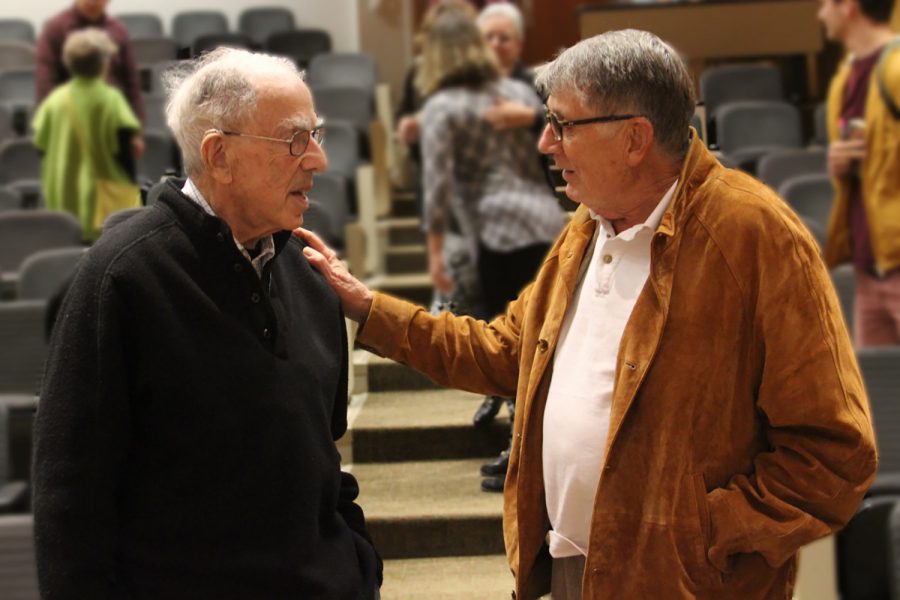Addressing the paradox of aging: UI’s retired founder of nonfiction writing program shares snippet of his latest work
A former professor and esteemed essayist, Carl Klaus exposed the hard twists and funny turns that come with being a man in his eighties in excerpts of his next work.
October 7, 2019
Tackling the eighth decade of his life, Carl Klaus, founder of the University of Iowa nonfiction writing program, returned the UI to read from his latest work, Coming of Age: An Octogenarian’s Chronicle at the College of Public Health. Klaus’ prose divides his life into six-month segments, compiling daily notes into documentative, yet playful recounting.
“I was spellbound,” said Nancy Wyland, a graduate of the nonfiction program and research support specialist for the College of Public Health.
As one of the event organizers, Wyland emphasized how happy she was to have such a good crowd come to the event. While no longer at the UI during her time in the graduate writing program, she knew that the event would be beneficial for the College of Public Health with its content and help bring a stage to someone so fundamental to a program she had been a part of.
As Klaus led the audience through reflections on his battle with cancer and remission, an ever-present fear of contracting Alzheimer’s, and playing the so-called “chess game” of old age, the crowd sat mesmerized.
“It’s a very hopeful message to hear,” Lori Benz, a spectator, said. “As the saying goes, old age is not for sissies.”
Benz went on to detail how Klaus’ message around finding new things to appreciate in times of growing older is a necessity in a time when the human spirit needs to find newness.
Following the reading, Klaus had a question and answer section. Walking up and down the aisles to ensure he’d hear the questions properly due to faulty hearing aids, Klaus walked the walk of his words in that aging is a process.
Beyond aging; however, Klaus said he faces a different writing process when it comes to this particular work. In his previous pieces, he typically wrote for no longer than nine months consistently. Thus, the process of writing such a detailed account of the past seven, coming up on 80 years of his life, Klaus specified the importance of discipline in his writing practice.
“You can no more skip a day in your journal than you can in your life,” Klaus said. “The more I write, the quicker the words come.”
While giving advice to writers, Klaus discussed the habits of the writer — no matter the genre — to be the fundamentals of well-crafted writing. He said it builds fluency and a focused attentiveness to the world around necessary for authentic and engaging writing.
In Klaus’ excerpt, he detailed how the older generation of today is different from times when grandparents living in the family home or not far was more common.
“I don’t often find myself feeling lonely,” Klaus said. “The writing is companionship.”




